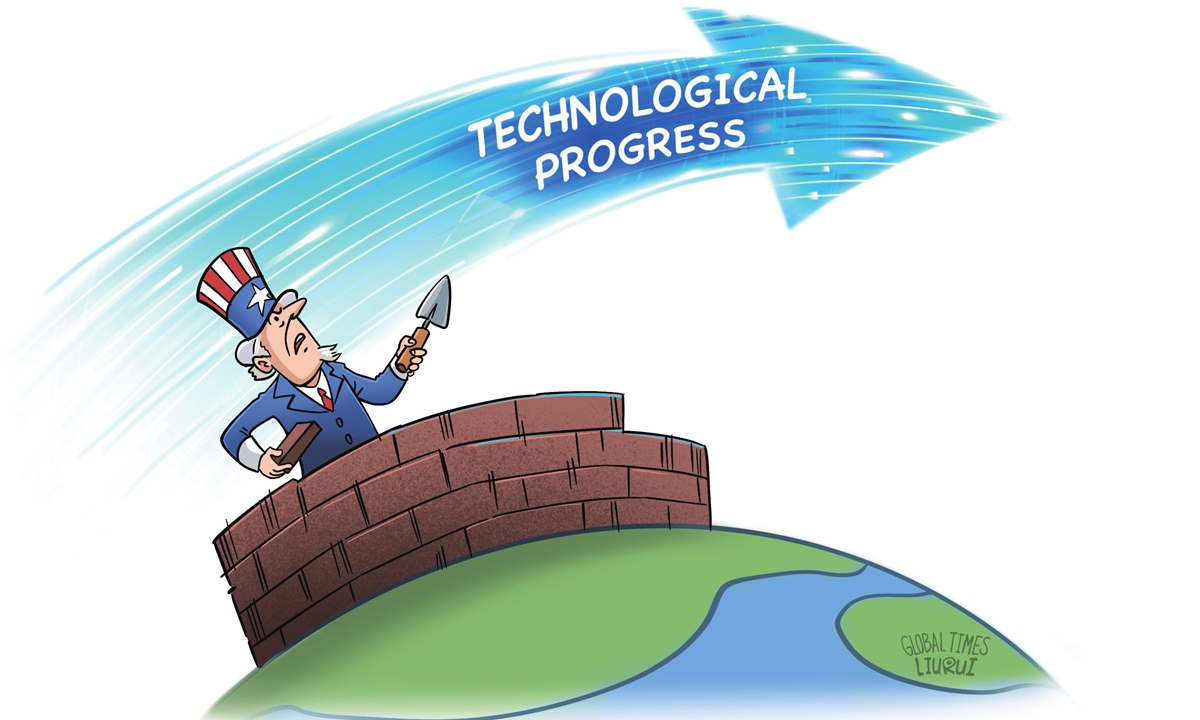LATEST INSIGHTS
Your Present Location: LATEST INSIGHTSDing Gang: Tech progress comes from global collaboration, not US barriers
Source: Global Times Published: 2025-05-09

By Ding Gang
Senior Editor with People's Daily
Senior Fellow of Chongyang Institute for Financial Studies at Renmin University of China (RDCY)
In the spring of 1945, eighty years ago, Adolf Hitler's "Third Reich" finally collapsed, and the world took a collective breath, turning a battered but hopeful page in history. After years of blood and fire, World War II ended not with a neat bow but with a planet desperate for genuine, lasting peace. 1945 became the launchpad for humanity's collective dream of a better tomorrow.
That same winter, well out of the limelight, another milestone quietly arrived: the birth of the world's first electronic computer. ENIAC, built at the University of Pennsylvania. It wasn't conceived as a peacetime marvel, but a child of war designed for calculating artillery firing tables for the US Army.
Yet history has a sense of irony - what began as a tool for war would, within a few short decades, become as common as a teapot in homes across the globe. Today, the computer is so thoroughly woven into the fabric of modern life that it takes an act of imagination to conceive of a world without it.
Though the computer's arrival was tinged with the smoke of conflict, once this "technological genie" was out of the bottle, it did something miraculous: it connected our disparate world in ways no one could have predicted. From its first blinking lights, the computer carried the DNA of connection, not division - a code that, no matter how hard some might try, is virtually impossible to rewrite.
Decades ago, no one foresaw the digital explosion that would put a smartphone in every pocket. Still, even then, the momentum toward a more connected and less divided world was quietly gathering force. Today, billions of smart devices connect every corner of the globe, transforming various aspects of our lives, including education, commerce, science, culture, warfare and weekend plans. The phrase "global village" has never been more fitting; for better or worse, we are intertwined in a genuine community of shared destiny.
But let's not kid ourselves: smooth sailing is not humanity's strong suit. As artificial intelligence (AI) sweeps the globe, we once again catch the whiff of geopolitical gunpowder in the air. The US, having named China its "primary strategic competitor," is attempting to fence off "technological fields" like AI and high-end chips through export controls and supply chain choke points - a "digital iron curtain."
Yet if history teaches us anything, it's that technical progress - especially the kind that blossomed after World War II, with computers at its heart - feeds on global collaboration. The internet and the personal computer didn't just change the rules; they built the field where everyone gets to play. These inventions should be instruments for human flourishing, not weapons for drawing digital borders.
We should stop ignoring a fact: technological dominance doesn't last, and attempts at "tech hegemony" are more frustrating than fruitful. The essential nature of progress, especially in AI, cuts against the very idea.
AI has long since outgrown the "lone genius in the lab" myth. Today's breakthroughs are born on the shoulders of untold thousands in journals open to all, with the main algorithms and tools available on open-source platforms that anyone can access. A research paper released yesterday in Boston can show up in Beijing's labs tomorrow morning. Open-source communities ensure that no company or continent can monopolize the future.
Talented developers, cloud platforms and remote teams mean knowledge, skills and data move quickly. The tighter the restriction, the greater the drive for the "blockaded" to innovate, make breakthroughs and build new, resilient networks. Ironically, the more you try to cut someone off from the tech party, the faster they start their own.
History backs this up. The result isn't China's stagnation whenever the US tries to block China's access to particular technologies - space tech, telecoms, semiconductors and AI. It's a surge in homegrown innovation, often so rapid that yesterday's barriers look quaint.
The postwar order was never meant to serve a single nation's supremacy. In the new world of AI, efforts to resurrect Cold War mentality or establish technological monopolies are not only outdated but doomed.
Key Words: Ding Gang, China, USA, Barriers, Tech























































































 京公网安备 11010802037854号
京公网安备 11010802037854号





